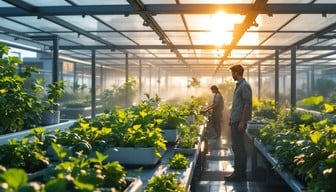Food production courses are designed to equip students with the skills and knowledge necessary for a career in the hospitality and food industry. Here's a summary of what these courses generally entail:
**Core Focus:**
* **Culinary Skills:** Mastering cooking methods, balancing recipes, and standardizing recipes.
* **Food Safety:** Understanding and implementing food safety and sanitation practices, along with personal hygiene.
* **Kitchen Management:** Learning about kitchen operations, menu planning, food cost control.
**Curriculum:**
* Food chemistry and nutrition
* Food microbiology
* Food engineering
* Principles of food processing
* Food packaging technology
* Food quality systems and management
* Techniques in food analysis
**Course Levels:**
* Food production courses are available at various levels, including:
* Diploma
* Certificate
* Undergraduate (e.g., B.Voc in Food Processing)
* Postgraduate (e.g., M.Voc in Food Processing, MSc in Food Production Management)
**Eligibility:**
* Entry requirements vary depending on the course level. Generally, diploma and certificate courses may require a Class 10 or 12 pass. Undergraduate courses typically require a Class 12 pass with a minimum aggregate score.
**Possible Career Paths:**
* Chef
* Food safety manager
* Food technologist
* Quality assurance officer
* Food stylist
* Catering officer
* Production Supervisor
* Food Product Development
* Food Logistics/ Supply Chain roles
**Key skills gained:**
* Food processing
* Quality assurance
* New product development
* Supply chain planning
* Quality management
* Food analysis
* Packaging
* Agrifood biotechnology
* Waste management
* Food chain integrity
* Lean manufacturing
---
- Teacher: Eunice Jemutai




